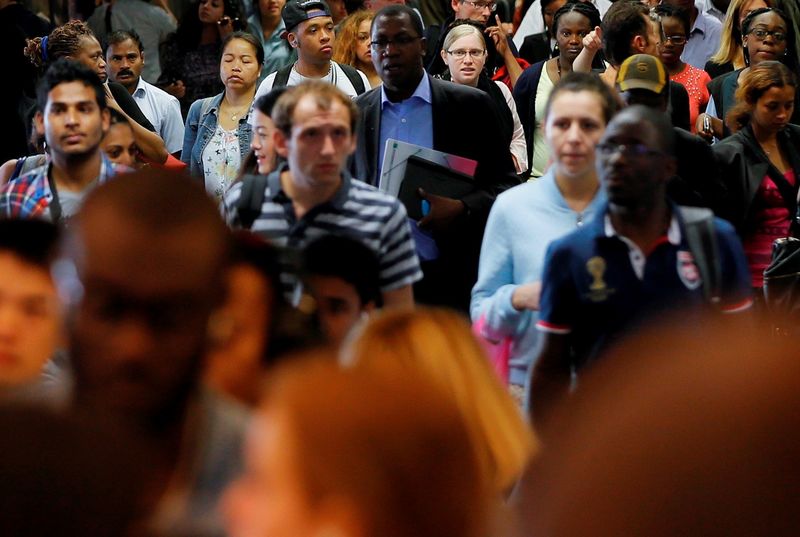By Karin Strohecker
LONDON (Reuters) - Emerging market central banks are launching asset purchase programmes to help mitigate the economic impact of coronavirus, a fresh test of unconventional policy tools that were only adopted by developed economies a decade ago.
A dozen countries, from Chile to the Philippines, South Africa and Turkey, have launched or boosted quantitative easing (QE) schemes through which they will buy government bonds and sometimes other domestic securities.
Like the U.S. Federal Reserve and other major central banks which have used QE since the global financial crisis of 2008-09, they aim to prime their economies with newly created money to spur lending and investment as interest rates hit record lows.
But some former policymakers and analysts warn that repeating what is essentially a monetary policy experiment in emerging economies could have unintended consequences.
"I don't think it is either advisable or necessary for emerging markets to go into QE right now," said Divvuri Subbarao, governor of the Reserve Bank of India from 2008-2013, who warns of dangers in suggestions the RBI could help the Indian government monetise its budget deficit by buying bonds.
"It is not necessary. They have enough conventional instruments available and they can still cut rates now," he added. "And also, central banks are taking on a credit risk, and I don't think emerging market central banks are in a position to take on such a credit risk."
Emerging economies like Turkey or South Africa lack the big domestic savings pools seen in developed countries and rely on foreign investors, attracted by relatively high interest rates, to cover big payment deficits and underpin their currencies.
Any measures that bring rates closer towards the zero levels long seen in major economies therefore risk deterring those vital overseas fund flows.
"In high-yielders which have already de facto lost a degree of market access, the risks of QE are larger," said Saad Siddiqui at JPMorgan (NYSE:JPM). "Here is a risk that, at an unknown tipping point, a combination of fears of policy indiscipline, inflation and capital outflows will dominate, with capital controls a possible end state."
That tipping point may be determined by a combination of factors, including the size of any QE programme and policymakers' ability to convince markets of its temporary nature, Siddiqui said. Inflation pressures, the structure of the local bond market and the size of foreign exchange reserves available if needed to sterilise bond purchases or support the currency will also play a role.
BIG IN CHILE
A variety of programmes have been announced across a diverse group of emerging markets that extends to more affluent countries such as South Korea.
South Africa and the Philippines are buying sovereign debt in secondary markets with no size limit specified, while Indonesia's central bank can buy bonds directly at auction.
Chile's central bank plans to buy up to $8 billion of bonds held by banks, which would amount to 30% of its balance sheet -- three times the size of the U.S. Fed's first QE programme -- and as much as 3% of the country's GDP, Citi calculated.
(GRAPHIC - Emerging market central bank balance sheets: https://fingfx.thomsonreuters.com/gfx/mkt/qzjpqkyoypx/EM%20central%20bank%20balance%20sheets.JPG)
Chile does share some of characteristics of its developed market peers, however, with interest rates having effectively reached nearly 0%.
But in countries like Turkey or South Africa, where interest rates are still well above those levels, analysts say bond buying programmes will allow governments to finance borrowing at lower cost or in larger size than would otherwise be possible.
"As always, necessity is the mother of invention, and in the absence of buyers for the increased debt supply, QE may be one way out," said Citi's Dirk Willer in a note to clients.
As the Fed pumped liquidity into the economy through its QE programmes, the dollar strengthened and U.S. yield curves flattened, a signal that investors expect stability.
Few analysts expect more vulnerable emerging markets to enjoy the same benefits, however, and some warn of side-effects.
"Where there is a high degree of reliance on market financing, such as in South Africa, Turkey and Brazil, yield curves and currencies are likely to see steepening pressure," said JPMorgan's Siddiqui.
Turkey's central bank has stepped in to backstop much of Ankara's financial response to the coronavirus crisis, buying a record $5 billion worth of government bonds since end-March.
In Brazil, which led the chorus of protest from developing economies against the Fed's QE programme after the 2008 crash, the central bank is expected to be granted emergency powers to buy financial assets in times of economic crisis, and not just for monetary policy or money supply management.
The South African central bank launched an unprecedented government bond buyback programme in March.
A pandemic-induced market rout has already battered many emerging market currencies. Turkey's lira has weakened more than 15% in 2020, while South Africa's rand and Brazil's real have lost more than 25% against the dollar.
(GRAPHIC - EM currencies: https://fingfx.thomsonreuters.com/gfx/mkt/nmopanqdyva/EM%20currencies%20May%204.JPG)
Sliding currencies raise the prospect of inflation -- a hazard for policymakers in emerging markets where food price increases can spark unrest.
"The population in countries like these, they do not look at interest rates, they do not look at quantitative easing, they are not looking at all that - ordinary people are looking at prices, this is the only way that will experience central bank policy," said Subbarao.
"And if they see that prices are going up, there will be enormous distress."
